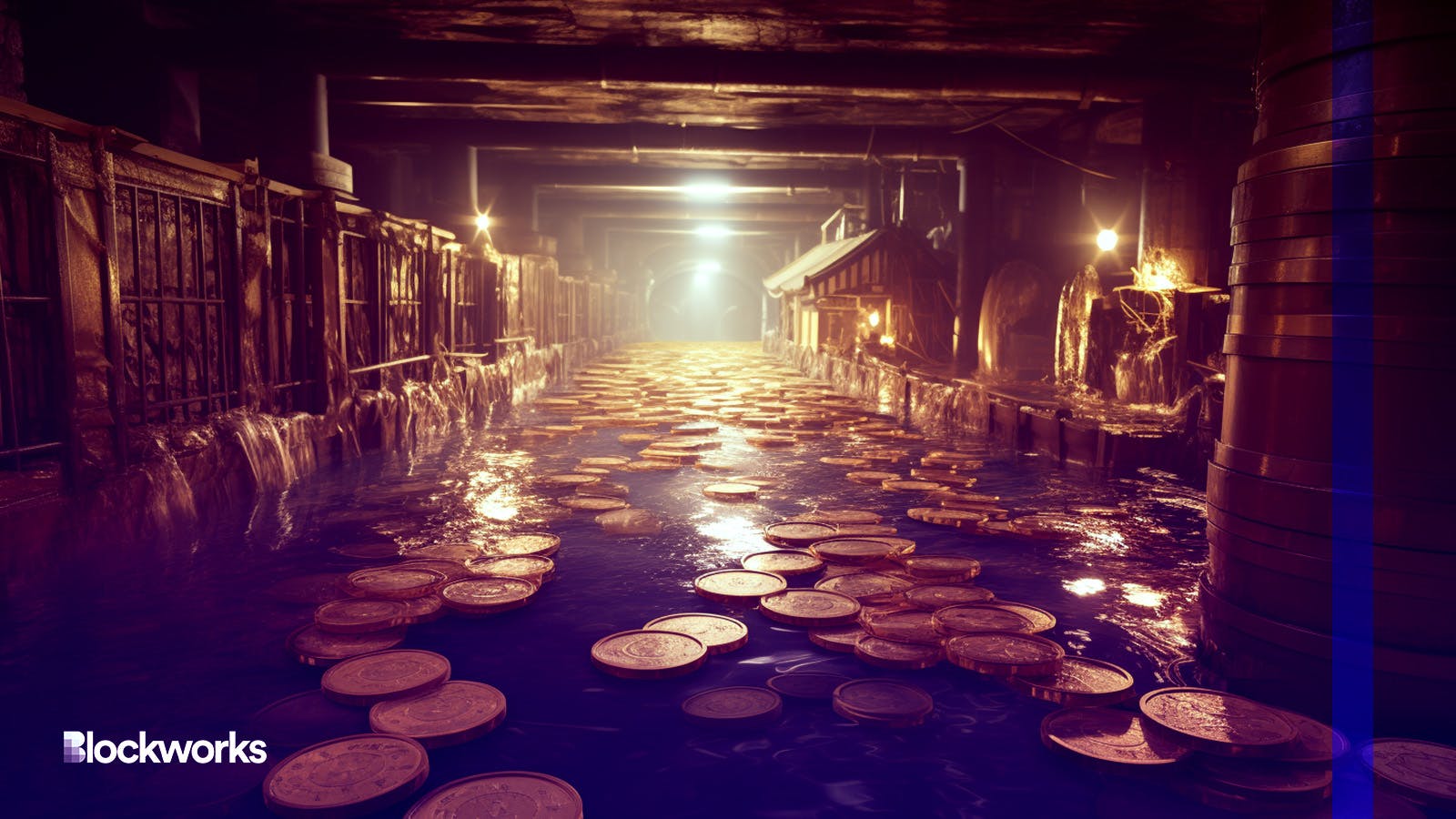DrainageDAO? What crypto can learn from a 4,000-year-old flood control system
If Chinese townspeople 4,000 years ago could band together to create a sophisticated drainage system to save their lives from yearly floods, can’t we all get along on Discord?

Midjourney modified by Blockworks
As some in the crypto world tell it, the era of decentralized governance and engineering is unprecedented, revolutionary even, in 2023.
But a recent study shows that decentralized engineering has actually been working out for a while already — 4,000 years, to be exact.
A University College London (UCL) team suggests in new research that decentralized coordination has actually long been in humanity’s toolkit, especially when it comes to the development of essential infrastructure and services.
Published last month in Nature, the research findings centered on ancient drainage systems within the ruins of Pingliangtai, an ancient city located in China.
According to co-author Dr. Yijie Zhuang, the 4,000 year-old sewage system “would have required a significant level of community-wide planning and coordination, and it was all done communally.”
Sound familiar?
One can argue that these ancient sewage and water pipes have a parallel to crypto.
What reportedly took place at Pingliangtai involved cooperation at “both household and communal levels” to form what the researchers called a “cooperative social governance” approach to managing the flow of water. As the researchers noted, such cooperation was vital, given the propensity for heavy rainfall and flooding from the Yellow River.
If you squint, “cooperative social governance” approach could be seen as a centuries-old way to say “decentralized autonomous governance.” A real-life community joining together to control the flow of water isn’t too far off from an online community joining together to control the flow of money.
Much of today’s crypto ethos is centered around (at least aspirationally) the decentralized control of the platforms and protocols in use today. The idea is that a community of stakeholders is preferable to the kind of top-down management seen in traditional business structures.
According to the paper, these new findings challenge earlier models about the rise of early governments in the region and theories on the management of water — “hydro-sociality,” in the context of the research.
Dr. Zhuang, one of the aforementioned senior authors of the paper, noted in a statement that “the discovery of this ceramic water pipe network is remarkable because the people of Pingliangtai were able to build and maintain this advanced water management system with stone age tools and without the organization of a central power structure.”
A community can be brought together by a shared incentive and the need for the collective management a network (pipes or blockchain) and its asset (water or tokens). If water is the lifeblood of an agricultural society, money is surely the same in a purely digital financial landscape.
Read more from our opinion section: Crypto has a copycat problem
We don’t know how those ancient governance conversations played out, and while we can assume they weren’t using some ancient Discord server, group discussion and activity prioritization must have been key.
Historical examples like the Pingliangtai are compelling and worth investigating for possible lessons to be applied in the crypto world. It goes without saying that personal biases or agendas must have been set aside to make these ancient drainage systems work. It was literally life-or-death — get the job done, lest the floodwaters do their damage.
We can only speculate as to whether things got as dramatic as, say, they can in the world of DAOs.
DAO governance is messy. Just look at the drama around Arbitrum last spring. Plus, there are fair and open questions about the nature of these organizations and protocols and the degree to which they are decentralized.
But resolving those thorny social issues might be the make-or-break conflict that makes these models capable of survival in the long-run, just like the 4,000 year old Chinese citizens learned to band together to protect their town from floods. I’ll certainly be watching.
Get the news in your inbox. Explore Blockworks newsletters:
- The Breakdown: Decoding crypto and the markets. Daily.
- 0xResearch: Alpha in your inbox. Think like an analyst.






